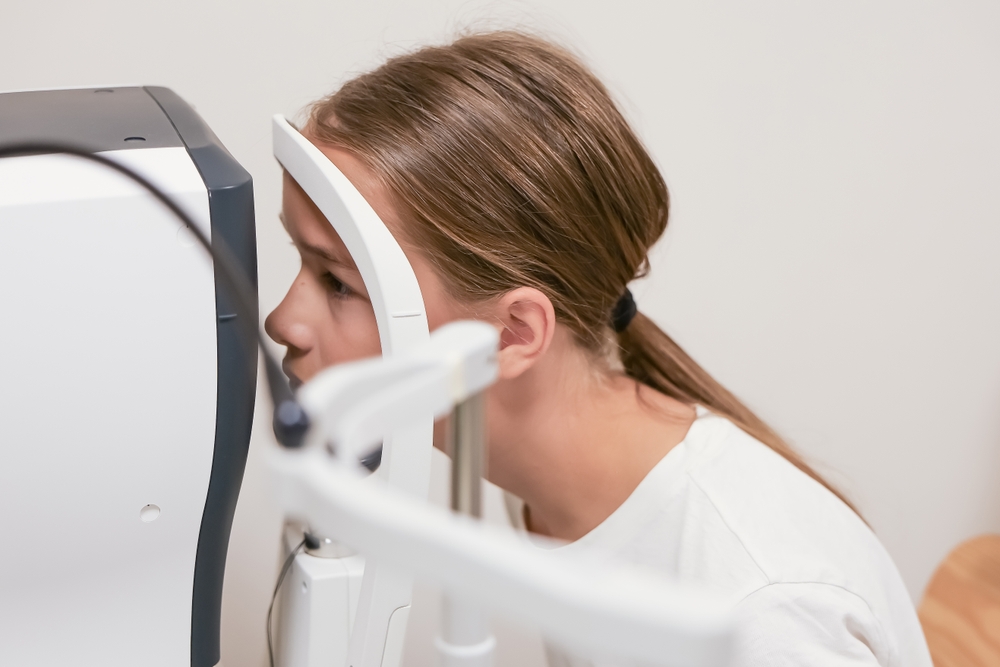
Vision is one of the most powerful tools a child uses to explore, understand, and interact with the world. While many people associate vision with simply seeing clearly, it actually involves a complex set of skills that influence nearly every aspect of a child’s development. Understanding how vision impacts development is the first step in identifying and addressing potential challenges early on.
How Vision Supports Childhood Development
Vision is a complex process that involves the eyes and the brain working together. Over 80% of what children learn is obtained through visual processing. From early motor skills like crawling and hand-eye coordination to academic skills like reading and writing, a well-developed visual system is foundational for success.
Motor Skills
Children rely on their vision to guide and coordinate body movements. Visual input helps develop balance, depth perception, hand-eye coordination, and spatial awareness. These skills that are essential for both gross motor tasks like walking, running, and riding a bike, as well as fine motor tasks like buttoning a shirt or holding a pencil. When visual-motor integration is underdeveloped, children may appear clumsy, avoid physical play, or struggle with activities that require coordination and precision.
Language Development
Vision plays a vital role in how children acquire and use language. By observing facial expressions, lip movements, and gestures, children begin to associate words with meaning and emotion. Visual tracking also allows them to follow objects and people, helping to build understanding and engagement during conversations. When visual skills are compromised, children may miss subtle social cues, struggle to understand context, or experience delays in expressive and receptive language development.
Cognitive and Social Skills
From solving puzzles and recognizing shapes to engaging in imaginative play, children depend on vision to process and interpret information. Strong visual processing skills help children organize what they see, make sense of patterns, and respond appropriately in social settings. When a child has difficulty with these skills, they may have trouble with attention span, memory, following multi-step instructions, or making and maintaining friendships. These challenges can impact self-esteem and emotional well-being over time.
Academic Performance
In the classroom, vision is a critical learning tool. Children use their eyes to read, write, take notes, and stay focused during lessons. Visual skills such as eye tracking, teaming, and focusing are necessary for smoothly following lines of text, copying from the board, or switching between tasks. When these skills are weak, children may avoid reading, experience fatigue during schoolwork, or fall behind academically. Often, these symptoms are misinterpreted as attention issues, learning disabilities, or a lack of motivation, when the root cause may be a treatable vision problem.
The Importance of a Developmental Vision Evaluation
Many vision screenings, such as those conducted at schools or pediatric checkups, only test for visual acuity (how clearly a child sees at a distance). While this is important, it doesn’t provide the full picture.
A Developmental Vision Evaluation dives deeper into how the eyes work together, how well a child can focus, track, and process visual information. This comprehensive assessment is critical for detecting subtle visual issues that may go unnoticed.
Some signs a child may benefit from a Developmental Vision Evaluation include:
• Difficulty reading or skipping lines
• Frequent headaches or eye strain
• Poor hand-eye coordination
• Trouble concentrating or easily distracted
• Avoidance of near work like homework or coloring
By identifying these challenges early, we can create personalized treatment plans to help strengthen visual skills and support your child’s success.
Take the Next Step Toward Better Vision and Learning
Vision is more than 20/20 eyesight. It’s a vital part of how children grow, learn, and thrive. We are passionate about helping children reach their full potential by addressing the visual foundations necessary for development.
If you suspect your child may be struggling with more than just blurry vision, schedule a Developmental Vision Evaluation at The Center for Vision Development and take the first step toward supporting their growth. Visit our primary location in Annapolis, Maryland, or call (410) 268-4393 to book an appointment today.











